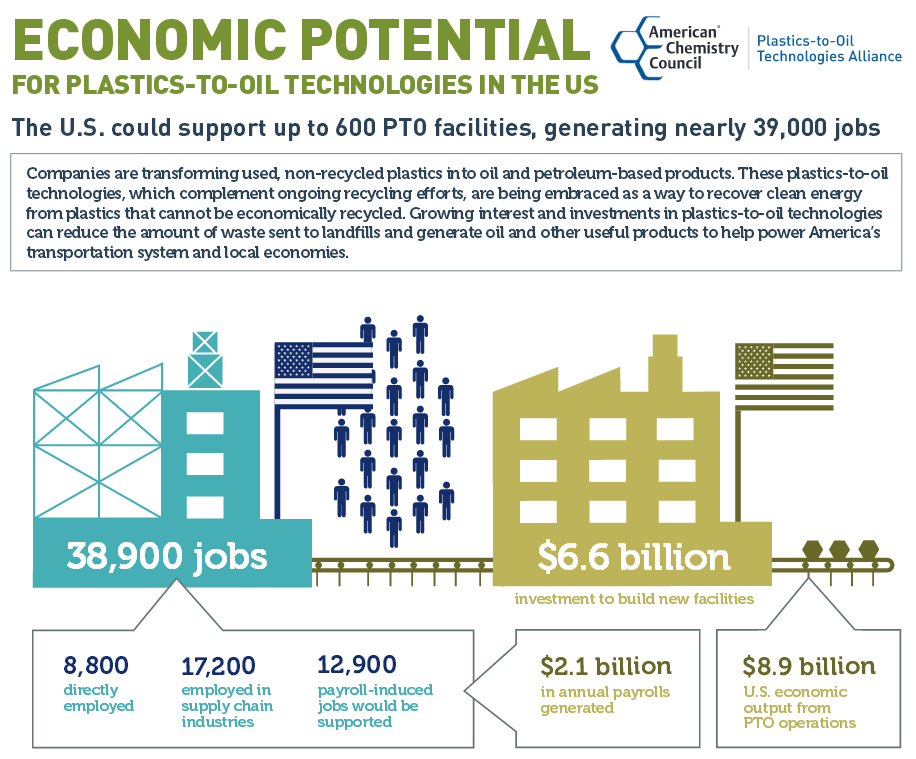Isn’t it time we stop burying our non-recycled plastics?
Our society is always looking for new, alternative energy sources. Energy is not only vital to most everything we do, it helps to create jobs and enables economic growth. On this blog, for example, we’ve discussed how recovering non-recycled plastics and turning them into energy has enormous environmental and economic potential.
A report released earlier this week (press release, full study) looked at one of these energy recovery technologies – pyrolysis, more commonly known as plastics-to-oil – and found that this technology alone has significant economic potential. The report, released by the American Chemistry Council, found that the United States could support as many as 600 plastics-to-oil facilities, which could create upwards of 40,000 jobs – and these facilities could generate nearly $9 billion in economic output annually.
A separate study, released earlier this year by engineers at Columbia University’s Earth Engineering Center, found that converting our nation’s non-recycled plastics into oil could generate 6 billion gallons of gasoline every year. That’s enough to fuel nearly 9 million cars annually.
And plastics-to-oil technologies have great environmental potential as well, such as the ability to generate a lower carbon footprint than other energy production technologies in use today.
Unfortunately, many states have dated solid waste laws that treat these new technologies as waste disposal instead of manufacturing processes. Updating these laws would help states to realize the important benefits of plastics-to-oil technologies.






